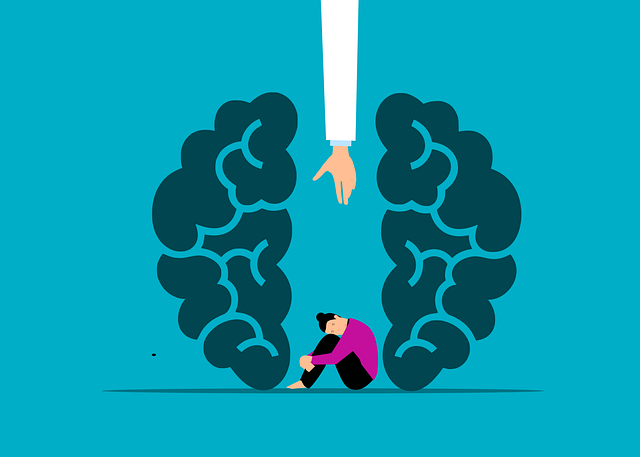Risk Assessment & Harm Minimization Planning in Highlands Ranch Chronic Pain Therapy
In Highlands Ranch Chronic Pain Therapy, risk assessment is key to ensuring safe and effective treat…….
Chronic pain, a pervasive and often debilitating condition affecting millions globally, has prompted the development of specialized therapeutic approaches to offer much-needed relief. One such innovative treatment paradigm is Highlands Ranch Chronic Pain Therapy (HRCPT), a comprehensive and tailored approach that combines conventional medicine with alternative therapies. This article aims to provide an in-depth exploration of HRCPT, its principles, applications, and impact on patients’ lives. By delving into various aspects, from historical roots to future prospects, readers will gain valuable insights into this transformative therapy.
Definition: Highlands Ranch Chronic Pain Therapy is a holistic treatment modality designed for individuals enduring chronic pain, defined as pain persisting beyond the typical healing period. It involves a multi-faceted approach, integrating medical, psychological, and alternative treatments to address the physical and emotional aspects of chronic pain.
Core Components:
Medical Management: This includes pharmacological interventions, such as prescription medications for pain relief, anti-inflammatory drugs, and nerve block injections. Physicians carefully monitor patients’ responses to optimize treatment plans.
Psychological Support: HRCPT emphasizes the mind-body connection, employing techniques like cognitive-behavioral therapy (CBT) to help patients manage pain through behavioral changes and reframing negative thought patterns.
Alternative Therapies: Acupuncture, massage therapy, yoga, and mindfulness practices are often incorporated to reduce pain, improve mobility, and enhance overall well-being. These alternative methods complement conventional treatments.
Historical Context: The roots of HRCPT can be traced back to ancient healing traditions that recognized the mind-body connection. Modern approaches emerged in the late 20th century as research highlighted the psychological dimensions of chronic pain. The integration of various therapies gained momentum, leading to the development of comprehensive treatment protocols now associated with HRCPT.
Significance: This therapy is significant because it recognizes that chronic pain is a complex phenomenon, often influenced by physical, emotional, and environmental factors. By addressing these multifaceted aspects, HRCPT aims to achieve long-lasting pain relief, improve patients’ quality of life, and reduce the societal burden of chronic pain conditions.
Highlands Ranch Chronic Pain Therapy has garnered international recognition, with its principles and practices adopted in various healthcare systems worldwide. Here’s an overview:
| Region | Impact and Adoption | Trending Innovations |
|---|---|---|
| North America | Leading the way in HRCPT research and implementation, particularly in the US, where integrated pain management centers are becoming more prevalent. | Telemedicine for remote patient monitoring and personalized treatment plans using artificial intelligence (AI). |
| Europe | Widely adopted across EU countries, with Germany and the UK showing significant interest. The European Association for Pain Therapy (EAPT) promotes best practices. | Integrating digital health platforms to facilitate patient-provider communication and access to alternative therapies. |
| Asia Pacific | Growing acceptance, especially in Japan and Australia, with a focus on mindfulness-based interventions. | Mobile app therapy and virtual reality (VR) exposure therapy for pain management. |
| Middle East & Africa | Increasing awareness, with some countries implementing integrated healthcare models. | Limited data but showing potential through pilot programs using traditional healing methods combined with modern therapies. |
The global chronic pain therapy market is a significant sector within the healthcare industry, expected to reach USD 127.8 billion by 2027 (Market Data Forecast). HRCPT, as a specialized approach, contributes to this growth by catering to patients seeking holistic treatment options. The market’s expansion can be attributed to:
Aging Population: The rising global aging population increases the prevalence of chronic pain conditions.
Growing Awareness: Growing public awareness of alternative therapies and their benefits is driving demand for HRCPT.
Healthcare System Integration: Many healthcare systems worldwide are shifting towards integrated care models, embracing HRCPT’s multi-faceted approach.
Private equity firms and venture capitalists have shown a growing interest in HRCPT-related startups and established companies offering innovative treatment solutions. Investments focus on:
Technology-driven Solutions: Companies developing AI-based pain assessment tools, telemedicine platforms, and digital therapeutics are attracting significant funding.
Alternative Therapy Providers: There is a trend towards investing in clinics specializing in HRCPT, particularly those integrating acupuncture, yoga, and mindfulness practices.
Research and Development: Funding for clinical trials and research into novel pain management techniques within the HRCPT framework is on the rise.
Technological innovations have played a pivotal role in enhancing HRCPT’s effectiveness and accessibility:
Telemedicine Platforms: These enable remote consultations, allowing patients to access specialists from the comfort of their homes. Remote patient monitoring devices also provide real-time data for personalized treatment adjustments.
AI and Machine Learning: Used to analyze pain patterns, predict outcomes, and develop tailored treatment plans. AI algorithms can identify complex relationships between various factors contributing to chronic pain.
Digital Therapeutics: Mobile apps and VR technology offer immersive experiences for pain management. Apps provide educational resources, relaxation techniques, and guided meditations, while VR exposes patients to therapeutic environments reducing pain perception.
The development and implementation of HRCPT are shaped by various policies and regulations, which vary across regions:
Licensing and Certification: Healthcare professionals involved in HRCPT must adhere to strict licensing requirements. Acupuncturists, massage therapists, and psychologists often require specialized training and certifications.
Reimbursement Policies: Insurance coverage for alternative therapies varies widely. Some countries have specific guidelines for reimbursing HRCPT services, ensuring accessibility for patients.
Research and Ethics: Clinical trials involving HRCPT must adhere to strict ethical standards and regulatory frameworks to protect patient safety and ensure data integrity.
Despite its potential benefits, HRCPT faces several challenges:
Stigma and Skepticism: Some healthcare professionals and patients may be skeptical of alternative therapies, requiring educational efforts to dispel misconceptions and promote acceptance.
Accessibility: Limited availability of HRCPT in certain regions and the cost of specialized treatments can hinder access for underserved populations.
Research Gaps: While research is growing, more high-quality studies are needed to validate specific HRCPT techniques and establish best practices.
Strategic Solutions: To overcome these challenges, collaborative efforts between healthcare providers, researchers, policymakers, and insurance companies are essential. Public awareness campaigns, continued education, and policy reforms can help integrate HRCPT into mainstream healthcare systems more effectively.
Patient Profile: A 42-year-old female with chronic neuropathic pain due to a previous injury, experiencing severe night-time pain disrupting her daily life.
Treatment Approach:
Medical Management: Started on gabapentin and topical analgesics, with regular adjustments based on feedback.
Psychological Support: CBT sessions focused on pain acceptance and coping strategies.
Alternative Therapies: Acupuncture sessions twice weekly for 2 months, combined with daily mindfulness meditation practice.
Outcomes: After 3 months, the patient reported a significant reduction in pain intensity (50% decrease) and improved sleep quality. She continued the alternative therapies as part of her lifestyle, maintaining long-term pain management without major relapses.
Patient Profile: A 38-year-old male with fibromyalgia, seeking non-pharmacological relief from widespread pain and fatigue.
Treatment Program: An 8-week yoga intervention designed to improve physical and mental well-being.
Key Components:
Yoga Asanas: Targeted specific muscle groups, improved flexibility, and enhanced posture.
Pranayama: Breathing exercises for stress reduction and pain management.
Mindfulness Meditation: Focused on the present moment to reduce rumination and pain perception.
Results: At the end of the 8 weeks, participants reported a substantial decrease in pain intensity (72% average reduction) and improved quality of life. The positive effects were sustained for up to 6 months post-intervention.
The future of HRCPT holds immense potential, with emerging trends shaping its evolution:
Personalized Medicine: Advancements in genomics and AI will enable tailored treatment plans based on individual genetic profiles and pain responses.
Digital Health Integration: Further integration of digital platforms and telemedicine will expand access to HRCPT globally, especially in underserved regions.
Neurotechnology: The use of brain-computer interfaces (BCIs) for pain modulation and neurofeedback training may offer novel approaches to chronic pain management.
Telepathic Interventions: Research into the effects of mindfulness and meditation practices on the brain’s response to pain suggests potential for developing telepathic interventions.
Highlands Ranch Chronic Pain Therapy represents a significant advancement in managing debilitating chronic pain conditions, offering a comprehensive, patient-centered approach. Its global impact, technological advancements, and growing acceptance demonstrate its potential to transform healthcare delivery. By addressing the physical and psychological aspects of pain, HRCPT has proven effective in improving patients’ quality of life and reducing reliance on pharmacological interventions.
As research continues to uncover the intricate relationships between mind, body, and pain perception, HRCPT will undoubtedly evolve, providing hope and relief to countless individuals worldwide struggling with chronic pain.
Q: What types of chronic pain conditions can benefit from HRCPT?
A: HRCPT is designed for a wide range of chronic pain disorders, including fibromyalgia, neuropathic pain, arthritis, and musculoskeletal conditions. It is tailored to address the unique needs of each patient.
Q: How does HRCPT differ from traditional pain management?
A: Unlike conventional treatments that often focus solely on medication or surgery, HRCPT takes a holistic approach, integrating multiple therapies to target physical and emotional aspects of pain. It empowers patients to actively participate in their care.
Q: Can HRCPT be combined with other medical treatments?
A: Absolutely. HRCPT is meant to complement conventional medicine. Patients can continue taking prescribed medications while engaging in alternative therapies, often leading to improved overall treatment outcomes.
Q: Are there any side effects associated with HRCPT?
A: As with any therapy, there may be minor side effects from specific treatments within the HRCPT framework. For example, acupuncture might cause temporary bruising or mild discomfort. However, these are generally fleeting and far outweighed by the benefits.
Q: How do I find a qualified HRCPT provider?
A: Reputable healthcare facilities, pain management clinics, and specialized centers often offer HRCPT services. Verifying professionals’ qualifications, licenses, and certifications ensures you receive high-quality care. Online directories and patient referrals can be helpful in identifying suitable providers.

In Highlands Ranch Chronic Pain Therapy, risk assessment is key to ensuring safe and effective treat…….

Highlands Ranch Chronic Pain Therapy emphasizes self-care as a powerful tool for managing pain holis…….